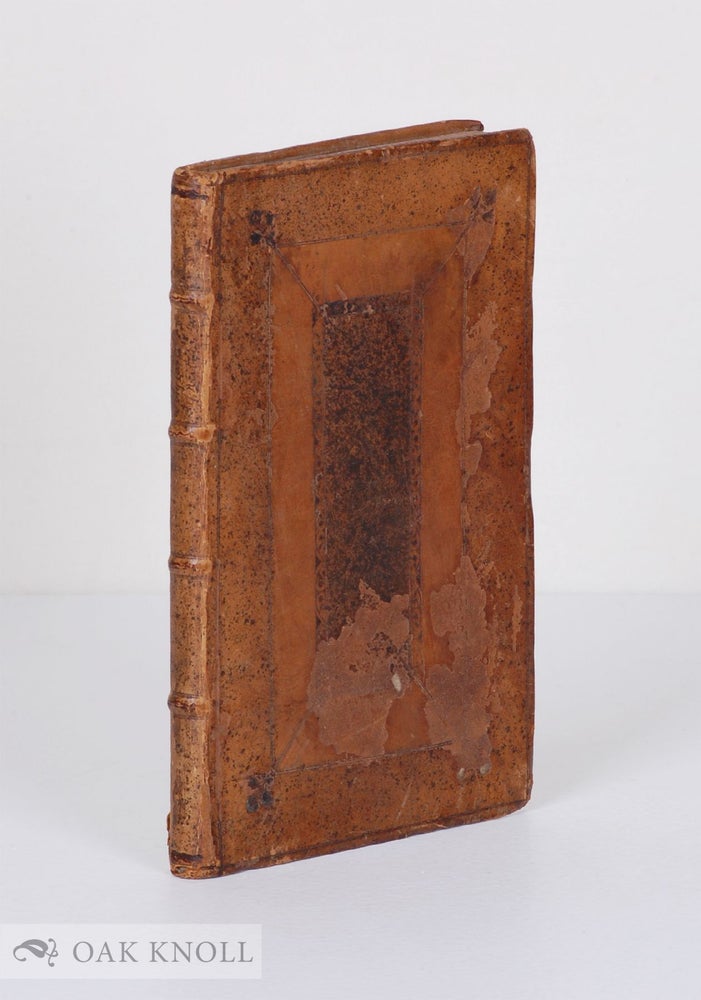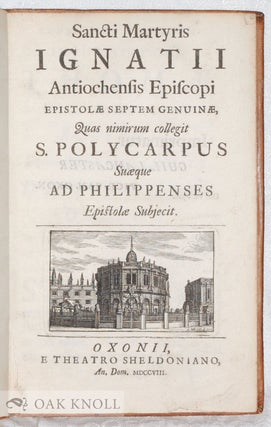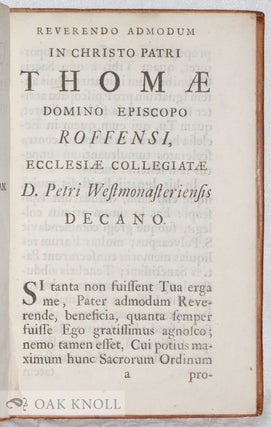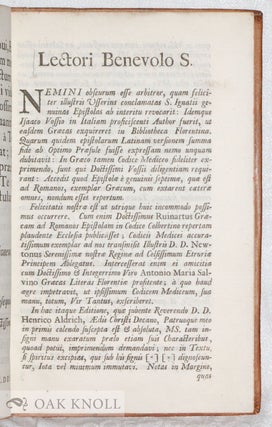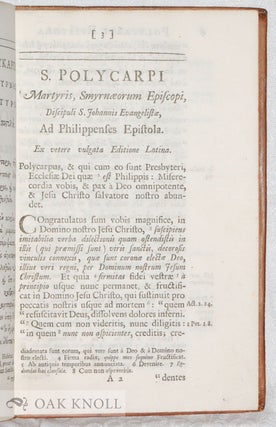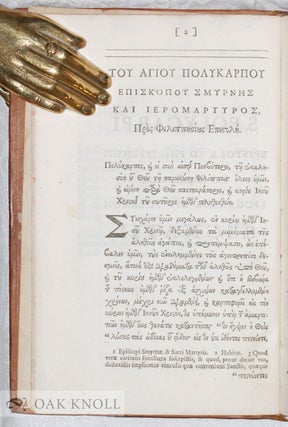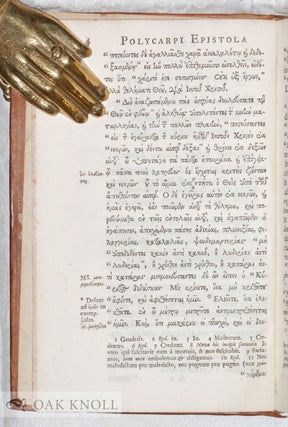EPISTOLAE SEPTEM GENUINAE QUAS NIMIRUM COLLEGIT S. POLYCARPUS SUAEQUE AD PHILIPPENSES EPISTOLAE SUBJECIT.
- Oxonii (Oxford, England): E Theatro Sheldoniano, 1708.
- small 8vo
- full contemporary paneled calf, stamped in blind on the front and rear panel, four flural ornaments stamped in black at each corner on the front and rear boards, four raised bands, all edges sprinkled red
- (x), (1), 2-135, (1) pages, copperplate engraving of the Sheldonian on the title-page
Price: $2,000.00 other currencies
Order Nr. 136462
First edition of this extremely scarce work on Polycarp's Epistle of Polycarp to the Philippines. Edited by C. Aldrich. Binding lightly scuffed on covers with some light wear to spine and hinges. A small tear to page 133/134, else the interior in fine condition. Twelve copies found in WorldCat and . This work is a collection of nine letters by Polycarp (69 AD - 155 AD), the Greek Cristian Bishop of Symrna. He is considered to be one of the earliest Christians whose writings survived. The letters are directly printed in Greek, followed by a direct translation in Latin on the following pages. Dibdin states, "It was because Isaac Vossius had so carelessly printed the readings in the Florentine MS. that Antonio Maria Salvini collated that MS. afresh, and sent to Dean Aldrich the materials from which the present edition (containing only the genuine epistles of the Father) was published under the care of the Dean, at the Sheldon theatre. This edition contains the epistle to the Romans (from Ruinart's Acts of the Martyrs) in which Ignatius declares his readiness and even anxiety to die in the service of bis Divine Master : Harwood says, that " this book is published with great fidelity." It seems that only 100 copies were printed; of which a large paper copy, according to Brunet, was sold at De Cotte's sale for 40 francs : but I suspect that all the copies are of one form." Greek and Latin Classics, p. 178.
Provenance: From the Dorothy Sloan Silent Auction, lot #411.
Although he was a very active author, the Pol. Phil (as it is abbreviated) was Polycarp's only surviving work during his lifetime and was writen directly to the Christian church of Philippi, a former major Greek metropolis in north east Greece. In the epistle, Polycarp wished to address the spread of Christianity to those that would want to learn the teachings of the church. One of his most well-known students and friends was Ignatius, Saint Bishop of Antioch. Ignatius (108-140 AD) was a writer that wrote a series of letters that serve as early examples of early Christian theology.
Symrna was a Greek city located along the Aegean Coast of Anatolia. It is situated on the Western Coast of modern-day Turkey and has been renamed Izmir. From the private reference library of Dorothy Sloan with a commemorative bookplate loosely inserted.

